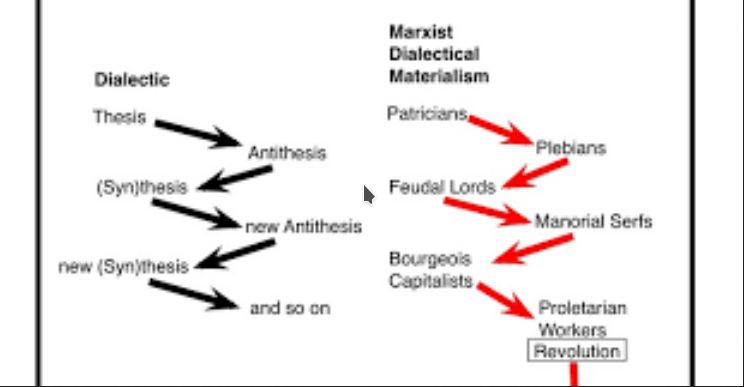I am relatively new here, so please excuse my newbiness, I mean no harm or disrespect. Nor have I researched enough on how the original community was expelled by the CEO of reddit.com inc.
If I can identify with something concretely and not negotiably, is a firm believer of dialectical materialism, so I am not posting questions as an outsider to dialectical materialists. I am only posting questions to dialectical materialists, so idealists don't waste our time responding.
I do not wish to play devil's advocate, I usually hate the attitude, but I can't help to have questions that fit the profile. As a first step I'd like to state that the theory of Marx & Engels and the evolution of Marxism is not one and the same, for reasons that relate to the questions. So here we go.
In the time Marx lived and struggled and in specific when he wrote Capital, the world was smaller, in population, and also scientific knowledge of the world itself. Since then sciences such as anthropology and archaeology evolved rapidly being really young at the time. This and other scientific knowledge was not yet available, so Marx can't be held accountable for things not yet known. He could also not be accountable for things that happened after his theory was established and based on his material reality.
Even during his life time his ideas and theory affected an amazing portion of working people around the earth, the way they organized and struggled, and the early effects of this influence as partially witnessed during his time. Labor struggle did continue to be influenced and carried on past his time. This struggle had effects on how capital dealt with labor, and also how the state/s tried to remain in power to best serve capital while not collapsing under labor pressure.
Not a static picture A and picture B kind of comparison, but a dynamic process that had its qualitative and quantitative differences in various parts of the world, I think we can safely say that the social democracy was a dialectic product of struggle and capital domination. Not only did the state evolve but also capital evolved in identifying the enemy and source of trouble, as well as the uncomfortable shape of the evolved state. So anti-communism was born through this dialectic process and resulted in the things we very well know now.
Although Marx may have developed the theory to be as scientific as possible, and it is the role of scientific theory to interpret material reality but also form predictions, we can't expect Marx to have metaphysical abilities to see the future and the details of the dialectic he helped form, as this itself would have been a violation of his own philosophy. Marxists on the other hand did apply theory, sometimes in an idealistic way, to interpret dynamic political/economic processes of the decades that followed.
It is clear through class analysis that the logical proposal for the working class to overpower and defeat the ruling class would be to organize, better, more massively, and more effectively. The other class now being affected by this growing organization (syndicalism) isn't it expected to defend itself by organizing better itself?
Can it be possible that the state didn't provide adequate defense and be sufficient organization for the class due to its evolution in the late 19th and early parts of the 20th century in some parts of the world, primarily where capital was mainly based and centered? Would they seek better organization of the nation/state or would they seek further unity among its class globally and try to organize as to be able to control the nation/states?
Marxists seem to have resisted such consideration but I believe that if Marx himself was around he would entertain the possibility of such development.
If so, what is this federation of capital, how does it relate to its influence on different states, and what are the new roles of states within this new framework of capital defense against labor? It appears to be very effective both in accumulation of capital, labor defeat, and on its original goal of anti-communism. But can we revert and conclude it exists because of its effects?
If such possibility exists, how does it effect labor organization and goals overthrowing this federated capital rule?
